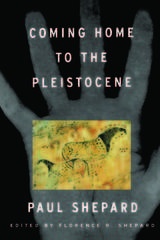
In the summer of 2005, distinguished geographer Yi-Fu Tuan ventured to China to speak at an international architectural conference, returning for the first time to the place he had left as a child sixty-four years before. He traveled from Beijing to Shanghai, addressing college audiences, floating down the Yangtze River on a riverboat, and visiting his former home in Chongqing.
In this enchanting volume, Tuan’s childhood memories and musings on the places encountered during this homecoming are interspersed with new lectures, engaging overarching principles of human geography as well as the changing Chinese landscape. Throughout, Tuan’s interactions with his hosts, with his colleague’s children, and even with a garrulous tour guide, offer insights into one who has spent his life studying place, culture, and self.
At the beginning of his trip, Tuan wondered if he would be a stranger among people who looked like him. By its end, he reevaluates his own self-definition as a hyphenated American and sheds new light on human identity’s complex roots in history, geography, and language.
Yi-Fu Tuan is author of Cosmos and Hearth, Dear Colleague, and Space and Place, all from Minnesota. He retired from the University of Wisconsin-Madison in 1998.

"When we grasp fully that the best expressions of our humanity were not invented by civilization but by cultures that preceded it, that the natural world is not only a set of constraints but of contexts within which we can more fully realize our dreams, we will be on the way to a long overdue reconciliation between opposites which are of our own making." --from Coming Home to the Pleistocene
Paul Shepard was one of the most profound and original thinkers of our time. Seminal works like The Tender Carnivore and the Sacred Game, Thinking Animals, and Nature and Madness introduced readers to new and provocative ideas about humanity and its relationship to the natural world. Throughout his long and distinguished career, Paul Shepard returned repeatedly to his guiding theme, the central tenet of his thought: that our essential human nature is a product of our genetic heritage, formed through thousands of years of evolution during the Pleistocene epoch, and that the current subversion of that Pleistocene heritage lies at the heart of today's ecological and social ills.
Coming Home to the Pleistocene provides the fullest explanation of that theme. Completed just before his death in the summer of 1996, it represents the culmination of Paul Shepard's life work and constitutes the clearest, most accessible expression of his ideas. Coming Home to the Pleistocene pulls together the threads of his vision, considers new research and thinking that expands his own ideas, and integrates material within a new matrix of scientific thought that both enriches his original insights and allows them to be considered in a broader context of current intellectual controversies. In addition, the book explicitly addresses the fundamental question raised by Paul Shepard's work: What can we do to recreate a life more in tune with our genetic roots? In this book, Paul Shepard presents concrete suggestions for fostering the kinds of ecological settings and cultural practices that are optimal for human health and well-being.
Coming Home to the Pleistocene is a valuable book for those familiar with the life and work of Paul Shepard, as well as for new readers seeking an accessible introduction to and overview of his thought.
READERS
Browse our collection.
PUBLISHERS
See BiblioVault's publisher services.
STUDENT SERVICES
Files for college accessibility offices.
UChicago Accessibility Resources
home | accessibility | search | about | contact us
BiblioVault ® 2001 - 2024
The University of Chicago Press









